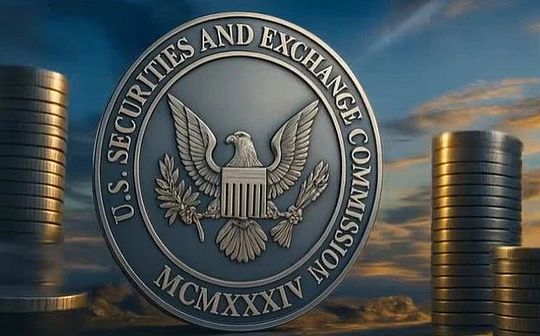
The latest liquidity pledge guidance issued by SEC staff has sparked market expectations that US regulators will soon allow cryptocurrency spot ETFs to conduct pledge business.
Nate Geraci, co-founder of the ETF Institute, said the guidance was the “last hurdle” before the SEC approved the Ethereum spot ETF to carry out the pledge business.
In addition, he pointed out thatLiquid staked tokens (LSTs) will be used to manage internal liquidity of funds, this is the core issue that the SEC is concerned about.
His view is consistent with the SEC’s position of the Financial Department of Corporates that, in the structure described, liquid pledge activities do not involve the issuance or sale of securities.
also,Pledge receipt tokens (SRT) are only used as receipts for underlying assets and are not securities themselves.

LSTs allow funds to maintain pledge exposure liquidity, maintain on-chain pledge rewards, and hold transferable receipt tokens, This token can be used for combination operations, staking or redemption without the need to completely unstake the position.
Jito Labs CEO Lucas Bruder said in a statement that the guidance reflects a “extremely detailed understanding” of the current liquidity staking mechanism.
“We will see an expanded range of LSTs in traditional and new financial instruments, including ETFs,” he added.
Regarding the impact of this decision, Bruder looks forward to the listing of fully staking ETFs achieved through LSTs.
Jito Labs CEO and other industry participants met with the SEC in mid-February to discuss ETF staking rules.
According to the minutes of the meeting, the two sides discussed the LSTs to address SEC’s concerns about the statute of redemption.Participants stressed thatLSTs within the ETP framework can avoid direct participation in the staking process, thus simplifying the process.
This liquid pledge guidance is based on the staff’s views on May 29. Other forms of pledges do not require registration, and functions such as early redemption and punishment protection will not convert pledge into securities issuance.
However, the SEC emphasized that its views only apply to administrative and transactional service provider roles and specific factual scenarios.Therefore, mechanisms beyond these scopes may be treated differently.






